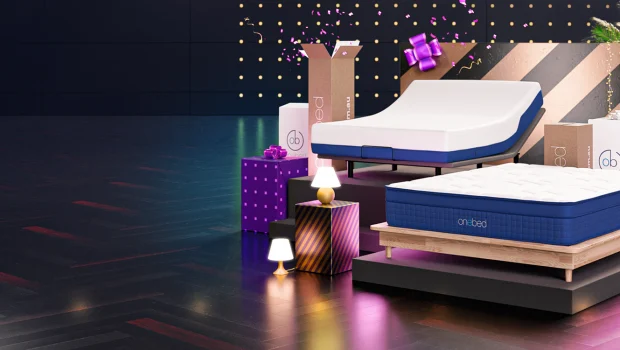Driving Tired? Expert Answers Australia’s #1 Googled Sleep Question (and 9 more)
Sleep touches every corner of our lives – shaping our productivity, mood, and overall health. Yet, it’s one of the most misunderstood aspects of well-being. The experts at Onebed dove into Australia’s top sleep-related questions using Ahrefs to uncover what’s keeping Aussies awake at night. From addressing sleep disorders like apnea to exploring practical strategies for falling asleep faster, experts answer some of the most common questions about sleep among Aussies.
“What is the minimum amount of required sleep you should have before taking a long drive?” (3800 searches)
Let’s cut to the chase – driving tired is like playing Russian roulette with your life. Seven hours of quality sleep is non-negotiable before a long journey. Research shows that anything less dramatically increases your crash risk. Think of it like this: would you start a long trek in the Outback without checking your water supply? The same principle applies to your brain’s fuel tank.
“Why Can’t I Sleep?” (2600 searches)
Sleep disruption is a complex beast. Most Australians don’t realize that beyond caffeine and blue screens, there’s a whole underground world of sleep disruptors. Micronutrient imbalances, particularly in Vitamin D and magnesium, can throw your entire sleep architecture into chaos. Your circadian rhythm is like a finely tuned instrument – even subtle changes can create significant discord.
“What is sleep apnea?” (2400 searches)
This isn’t just loud snoring – it’s a serious health condition that flies under the radar. One in four adults might be silently struggling with undiagnosed sleep apnea. Symptoms range from persistent loud snoring to unexplained daytime fatigue. It’s like having a silent predator lurking in your bedroom, interrupting your body’s essential recovery process.
“What is sleep paralysis?” (2100 searches)
It is a topic that concerns many Australians with over 2K monthly searches on average. So Imagine being awake but completely unable to move – that’s sleep paralysis in a nutshell. It’s a neurological phenomenon where your brain temporarily disconnects from your muscles during the REM-NREM transition. It’s not supernatural, but it sure feels like it. Understanding its mechanics can help demystify this spine-chilling experience.
“What is REM sleep?” (2100 searches)
Rapid eye movement (REM) sleep is where your brain does its most profound maintenance work. It’s like a nightly software update for your mind, consolidating memories, processing emotions, and essentially rewiring neural pathways. Adults typically need about 90-120 minutes of this critical stage each night.
“Can sleep apnea kill you?” (1800 searches)
Harsh reality check – untreated sleep apnea isn’t just inconvenient, it’s potentially fatal. Not a surprise that it is a concerning topic among Aussies. We’re talking about increased risks of heart attacks, strokes, and sudden cardiac events. It’s not scaremongering; it’s medical fact.
“Does magnesium help sleep?” (1500 searches)
Magnesium isn’t just another supplement – it’s a neural relaxation maestro. Specific variants like magnesium glycinate work magic by reducing cortisol, relaxing muscles, and supporting neurotransmitter regulation. It’s like a lullaby for your nervous system.
“How to sleep fast in 5 minutes?” (1100 searches
Here’s a curveball technique: instead of counting sheep, create the most mind-numbingly boring mental scenario possible. Imagine meticulously organizing a massive spreadsheet, or watching paint dry in extremely slow motion. Your brain will be so desperate to escape the monotony that sleep becomes an attractive escape.
“How to get more deep sleep?” (800 searches)
Deep sleep optimization is an art form. Create a sleep environment that whispers “safety” to your primitive brain. We’re talking cool temperatures (16-18°C), absolute darkness, and zero digital stimulation. Consider natural supplements like tart cherry and ashwagandha, but always consult with a healthcare professional.
“How to stop grinding teeth in sleep” (800 searches)
Teeth grinding is a big concern among Australians with over 800 searches per month. It isn’t just a dental issue – it’s often a stress barometer. Instead of immediately jumping to night guards, investigate the underlying tension. Mindfulness techniques, targeted physiotherapy, and stress management can be more effective long-term solutions.
Sleep is a deeply personal journey. What works universally is tuning into your body’s unique rhythm and creating an environment that genuinely supports restorative rest.







